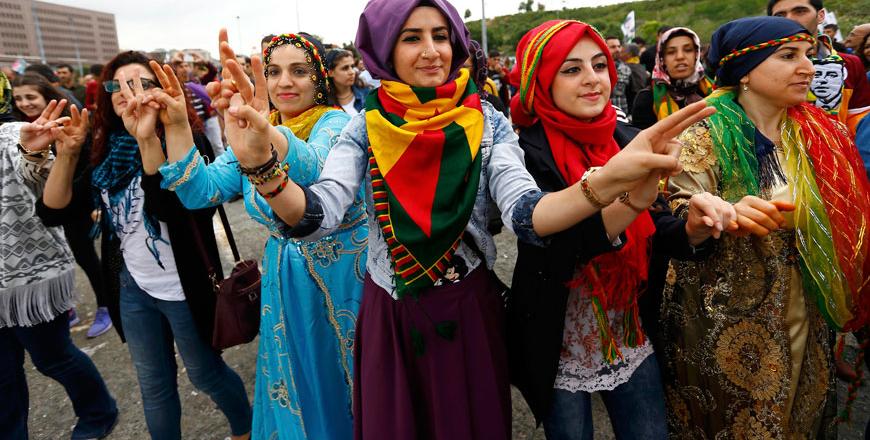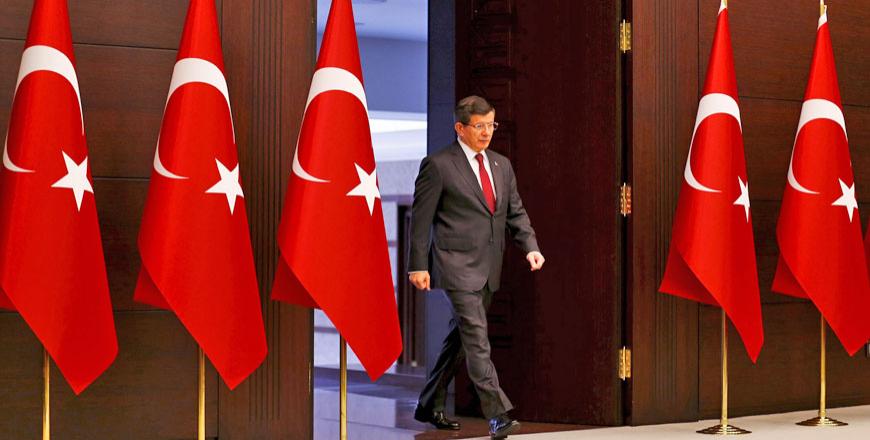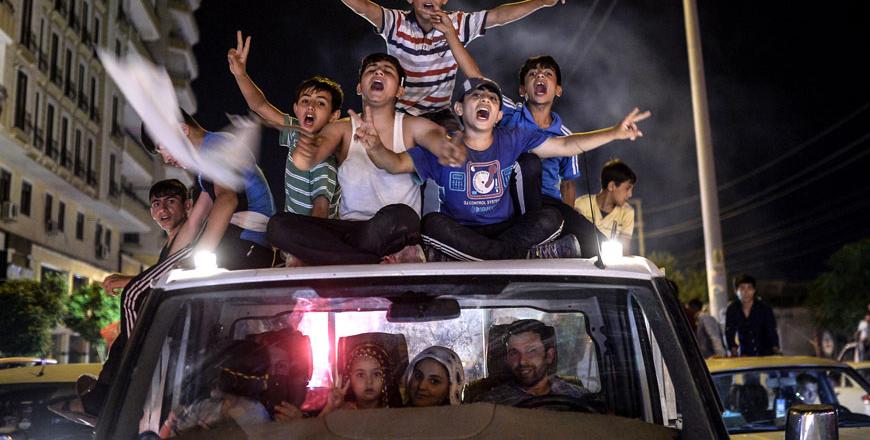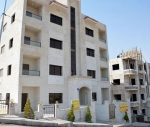You are here
Turkey facing turbulence after Erdogan poll blow
By AFP - Jun 08,2015 - Last updated at Jun 08,2015

Supporters of the Pro-Kurdish Peoples’ Democratic Party dance during a gathering to celebrate their party’s victory during the parliamentary elections, in Istanbul, Turkey, on Monday (Reuters photo)
ISTANBUL — Turkey on Monday entered a new period of political and financial turbulence after President Recep Tayyip Erdogan's ruling party lost its absolute majority in parliament for the first time since coming to power in 2002.
The uncertainty swiftly rattled financial markets, with stocks tumbling in morning trade and the Turkish lira plummeting in value against the dollar.
The Justice and Development Party (AKP) has dominated Turkish politics for the last 13 years but came up well short of a majority of seats in Sunday's legislative elections due to a breakthrough showing by the pro-Kurdish People's Democratic Party (HDP).
A coalition government and early elections are both now possibilities, in a situation unprecedented since the Islamic-rooted AKP swept to power.
The results wrecked the ambition of Erdogan — prime minister from 2003 to 2014 and now president — of agreeing a new constitution to switch Turkey from a parliamentary to a presidential system.
Such a change would have required a two-thirds majority in parliament. Just months before the election, Erdogan had been targeting 400 seats for the AKP.
However Erdogan's statement remained strictly presidential, in contrast to his hugely partisan behaviour on behalf of the AKP in the campaign.
In his first reaction to the result, Erdogan acknowledged that the AKP would not be able to govern alone and urged Turkey's political forces to show responsibility in "a new process".
"According to the available results, no party will be able to govern alone," he said in a statement released by the presidency that hailed the conduct of the elections.
"Political forces (should) show responsible behaviour and the necessary sensitivity to preserve the atmosphere of stability and confidence in our country and our democratic achievements," he said.
'Erdogan the loser'
The AKP won 41 per cent of the vote, followed by the Republican People's Party (CHP) on 25 per cent, the Nationalist Movement Party (MHP) on 16.5 per cent and the HDP in fourth place with 13 per cent.
Turnout was 86.5 per cent.
The result marked a major drop in support for the AKP — which in the last polls in 2011 won almost 50 per cent of the vote — against the background of a weakening economy.
The AKP will have 258 seats in the 550-seat parliament, the CHP 132, and the MHP and HDP 80 apiece.
"A new era", said the headline in the Milliyet daily. "The collapse", added the strongly anti-Erdogan Sozcu. "Voters showed Tayyip the red card."
The pro-government Yeni Safak said early elections were "on the horizon", with "weak" possibilities of a coalition.
But Deputy Prime Minister Numan Kurtulmus played down the chance of early elections ahead of a Cabinet meeting chaired by Prime Minister Ahmet Davutoglu, saying it was the "most distant possibility".
Analysts have seen the nationalist MHP as the most likely coalition partner for the AKP in the new parliament.
Another Deputy Prime Minister, Bulent Arinc, even suggested that the MHP, CHP and HDP should try and form a coalition between themselves.
The result was a triumph for the HDP, which in the campaign had sought to present itself as a genuinely Turkish party and reach out to voters beyond its mainly Kurdish support base to secular Turks, women and gays.
It was also a personal victory for the party's charismatic leader Selahattin Demirtas, dubbed the "Kurdish Obama" by some for his silky rhetorical skills.
"There is just one loser in the election — Recep Tayyip Erdogan," pro-opposition commentator Hasan Cemal wrote in an editorial for the T24 website. "And the winner is the HDP".
'Ugly mix of problems'
The parties now have 45 days to form a coalition, after which new elections would have to be called.
With investors nervous, the BIST 100 index on the Istanbul stock exchange was down 6.2 per cent while the Turkish lira lost 4 per cent in value against the dollar to trade at 2.76 lira to the dollar.
"The associated political uncertainty only adds to an ugly mix of existing problems for Turkey," said William Jackson at Capital Economics in London, citing high inflation, the current account deficit, and a rapid increase in private sector debt.
"Turkey is perhaps the most vulnerable of any major emerging market at this time," he said in a research note.
Turkey's central bank acted swiftly in an intervention to give some support to the lira, saying it was pruning its short term foreign exchange deposit rates, effective from Tuesday.
Related Articles
ANKARA — Prime Minister Ahmet Davutoglu invited high profile opposition figures to join an interim Cabinet on Wednesday, two months before a
ANKARA — Turkish President Recep Tayyip Erdogan's hopes of assuming greater powers suffered a serious blow on Sunday when the ruling AK Part
ISTANBUL — Turkish Prime Minister Ahmet Davutoglu kicked off long-delayed talks on forming a coalition government on Monday after firing a w


















